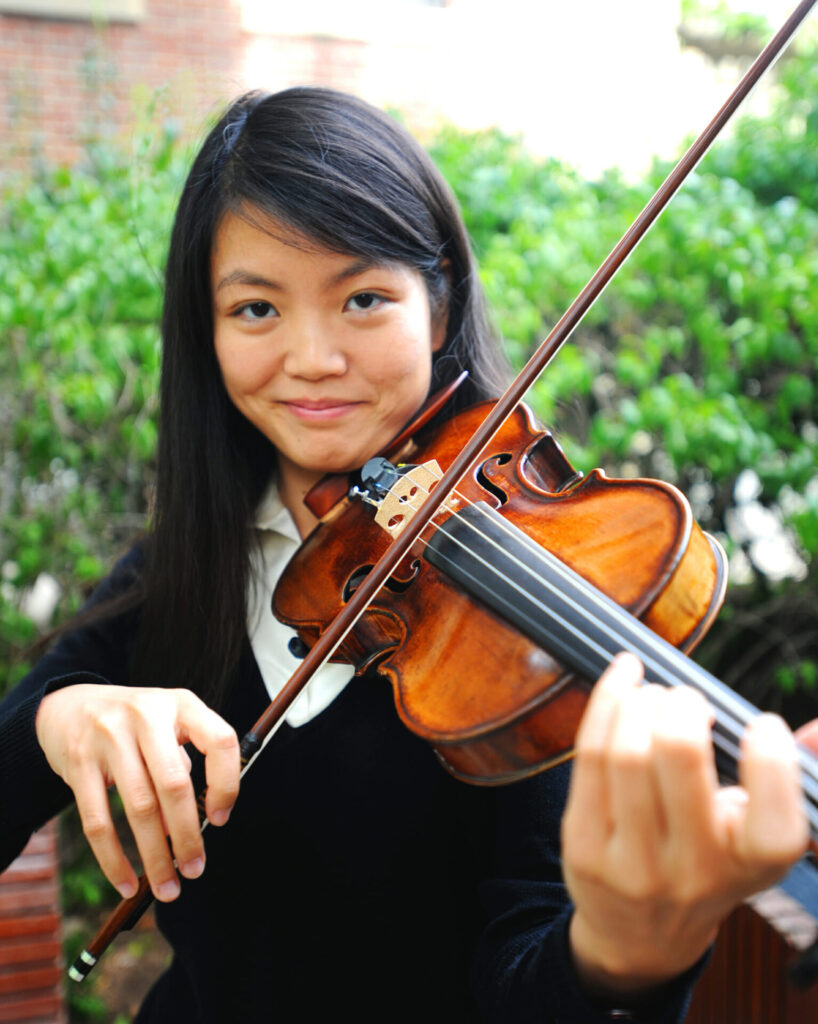Featured
Neuroscientists Scheduled for UM Science Cafe, Brain Awareness Week
 Two renowned neuroscientists are scheduled to give three lectures April 3-5 in Oxford and at the University of Mississippi.
Two renowned neuroscientists are scheduled to give three lectures April 3-5 in Oxford and at the University of Mississippi.
Psyche Loui, assistant professor of psychology, neuroscience and behavior and integrative sciences at Wesleyan University, will discuss “Why Do We Enjoy Music?” on April 3 at the third monthly Science Cafe of the semester, organized by the UM Department of Physics and Astronomy. The meeting is set for 6 p.m. at Lusa Bakery Bistro and Bar, 1120 North Lamar Blvd. Admission is free.
As part of Brain Awareness Week, Loui will lecture on “Your Brain on Music: The Neuroscience of Musical Perception” at 2 p.m. April 4 in Lamar Hall, Room 129. Alexander G. Ophir, assistant professor of psychology at Cornell University, will discuss “What’s Love Got to Do with It: The Myths and Mysteries of the Monogamous Praire Vole” Thursday at 4 p.m. that day in Lamar Hall, Room 129.
Books related to the topics will be given away among audience members at each lecture.
Ophir was invited to Ole Miss by Lainy Day, director of the neuroscience minor. He will participate in the neuroscience research showcase April 6 on campus.
Brain Week sponsors include the Office of Research and Sponsor Programs, College of Liberal Arts, School of Applied Sciences, Graduate School and the neuroscience minor program.
Loui’s 30-minute Science Cafe presentation will explore what musical behavior tells us about emotion and creativity.
“What gives some people a chill when they are moved by a piece of music?” Loui said. “How does connectivity in the brain enable or thwart musical perception? Can music be used to help with psychiatric and neurological disorders?”
To address these questions, Loui conducts research in her Music, Imaging and Neural Dynamics Laboratory.
Ophir’s discussion will focus on how the brain regulates social behavior, mating decisions and monogamy.
“Social interactions involve social recognition, care-giving, aggression or partner selection, as well as key hormones such as oxytocin,” he said. “My research uses an animal model and a multilevel approach – from genes to behavior – to better understand the social brain.”
UM administrators and professors said both appearances should be most interesting.
“Every year, neuroscientists find new evidence that show how our behavior is related to the function of specific circuits in the brain” said Alberto Del Arco, assistant professor of exercise science and a scientist in the Department of Neurobiology and Anatomical Sciences at the UM Medical Center. “The two talks that we have on our campus during the Brain Awareness Week are a good example of it.
“I am sure that both speakers are going to make these topics appealing and easy to understand for everyone. I would like to encourage everyone to join us and have fun learning about our brain.”
Marco Cavaglia, professor of physics and astronomy, agreed.
“I’m happy we can have again a joint science cafe event with Brain Awareness Week,” Cavaglia said. “Last year, we had a great lecture on how our brain perceives vision. This year, we will learn about how the brain perceives music.”
Loui earned undergraduate degrees in psychology and music and a certificate in neuroscience from Duke University, and a doctorate in psychology, with specialization in cognition, brain and behavior, from the University of California at Berkeley. Before joining the faculty at Wesleyan, she was instructor in neurology at the Beth Israel Deaconess Medical Center and the Harvard Medical School.
Loui has published in the journals Current Biology, Journal of Neuroscience, Journal of Cognitive Neuroscience, NeuroImage, Frontiers in Psychology, Current Neurology and Neuroscience Reports, Music Perception, Annuals of the New York Academy of Sciences and others. For her research on music and the brain, she has been interviewed by The Associated Press, CNN, WNYC, the Boston Globe, BBC Radio 4, NBC News and CBS radio and The Scientist magazine.
Ophir received his doctorate from McMaster University and his bachelor’s degree from the University of Texas. Before joining the Cornell faculty, he worked at Oklahoma State University and the universities of Florida and Memphis.
His intergrative neuroethology lab explores existing individual variation in behavior and the underlying mechanisms involved in prosocial behavior, such as partner fidelity; anti-social behavior, such as territory defense; socio-spatial cognition, including social recognition and spatial memory; mating decisions, such as alternative reproductive tactics; and fitness, including offspring survival.
For more information about Oxford Science Cafe programs, go to https://www.phy.olemiss.edu/
By Edwin B. Smith
For questions or comments email us at hottytoddynews@gmail.com.










































